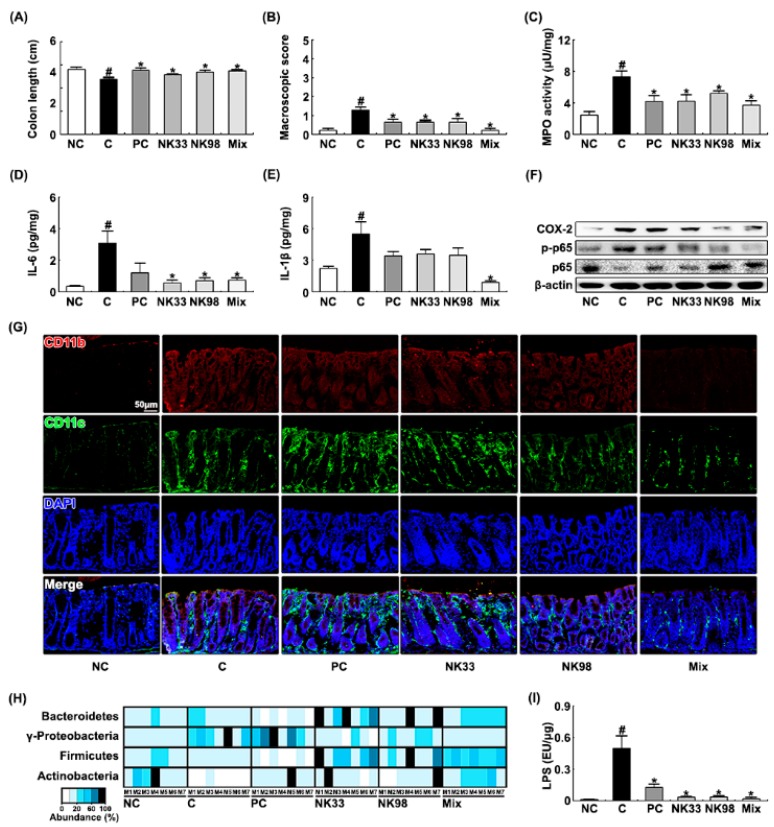Figure 3.
Oral administration of Lactobacillus reuteri NK33 and/or Bifidobacterium adolescentis NK98 alleviated immobilization stress (IS)-induced colitis in mice. Effects on the colon length (A), macroscopic score (B), myeloperoxidase (MPO) activity (C), IL-6 (D), IL-1β (E), and COX-2 expression, and NF-κB activation (F). Effects on the infiltration of CD11b+/CD11c+ cells into the colon (G), fecal microbiota composition (H), and fecal LPS levels (I). First, mice were exposed to IS and test agents (C, vehicle [1% maltose]; NK33, 1 × 109 CFU/mouse/day of NK33; NK98, 1 × 109 CFU/mouse/day of NK33; Mix, 1 × 109 CFU/mouse/day of the (1:1) mixture of NK33 and NK98]; and PC, 1 mg/kg/day of buspirone) were gavaged (for vehicle, NK33, and NK98) or intraperitoneally injected (for buspirone) daily for 5 days. Normal control group (NC), not exposed to IS, was treated with 1% maltose instead of test agents. Colonic p65, p-p65, COX-2, and β-actin were analyzed by immunoblotting. CD11b+ and CD11c+ cell populations were assayed using a confocal microscope. Fecal bacteria were assayed by qPCR. Fecal LPS assayed by ELISA kit. Data values are indicated as mean ± SEM (n = 7). # p < 0.05 vs. NC group. * p < 0.05 vs. IS group.

